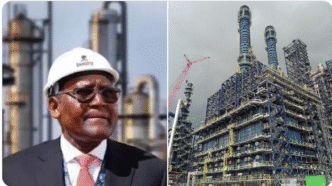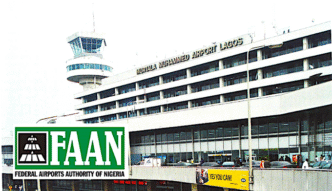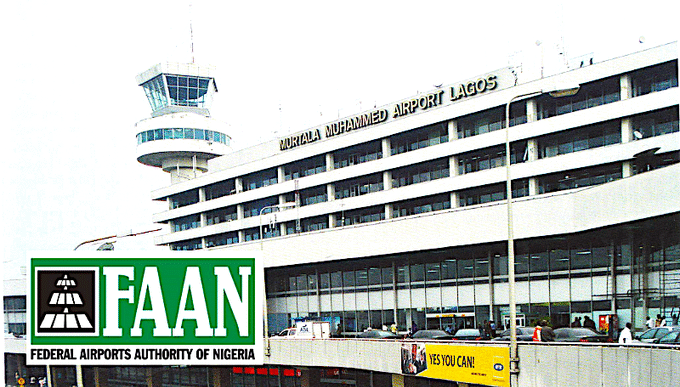The management of Dangote Petroleum Refinery and Petrochemicals has announced a major reorganisation of its operations and workforce following what it described as repeated cases of sabotage that threatened the safety of the $20 billion mega facility.
The 650,000 barrels per day refinery, the largest in Africa and one of the biggest single-train refineries in the world, disclosed the development in a letter dated September 24, 2025, and signed by its Chief General Manager of Human Asset Management, Mr. Femi Adekunle.
According to the letter, the decision was necessitated by “many recent cases of reported sabotage in different units of the Petroleum Refinery leading to major safety concerns.” The refinery said it had become “constrained to carry out a total reorganisation of the plant” to safeguard its assets, workers, and the public.
Dangote Refinery: Africa’s Oil Giant in Transition
The Dangote Petroleum Refinery, inaugurated in 2023, is widely regarded as a game-changer for Nigeria’s oil and gas sector. Designed to refine 650,000 barrels of crude oil per day, the facility is expected to produce enough petrol, diesel, aviation fuel, and other petroleum products to meet Nigeria’s domestic demand while also exporting surplus to other African and international markets.
Aliko Dangote, Africa’s richest man and chairman of the Dangote Group, has often described the refinery as a strategic national asset capable of ending Nigeria’s decades-long reliance on imported petroleum products.
However, the refinery’s latest announcement paints a troubling picture of internal challenges that could threaten its stability.
Staff Sabotage Allegations
The management cited repeated incidents of sabotage by employees across various units of the plant. While the letter did not provide explicit details of the alleged sabotage, industry observers say such acts could include tampering with critical equipment, leaking sensitive operational data, or undermining safety protocols.
“These incidents are not just about inefficiency or negligence,” one oil and gas analyst based in Lagos told this reporter. “Sabotage in a refinery of this scale can trigger catastrophic consequences — from massive financial losses to explosions, fires, or environmental disasters. Dangote Refinery cannot afford to take chances.”
The refinery’s letter made it clear that those found culpable would face strict disciplinary measures, while the broader reorganisation would allow management to “weed out compromised elements and strengthen operational integrity.”
Workforce Affected
As part of the restructuring exercise, affected staff members were directed to hand over all company property to their line managers. They were also instructed to await clearance before receiving their entitlements, which would be processed by the Finance Department in line with their conditions of service.
Although the refinery did not disclose the exact number of employees impacted, sources close to the development suggest that the reorganisation could affect hundreds of workers, spanning engineers, technicians, and administrative staff.
“This is a sweeping move,” said a senior employee who requested anonymity. “Many departments have been flagged for review, and management is determined to start afresh. While it’s unsettling for staff, the bigger picture is that they want to protect the refinery.”
Safety Concerns at the Forefront
Safety in oil refineries is paramount. With operations involving highly flammable substances and complex chemical processes, even minor errors can escalate into disasters.
Experts warn that sabotage in such a facility could have far-reaching consequences, including:
- Operational downtime resulting in billions of naira in losses.
- Environmental hazards such as oil spills, gas leaks, or toxic emissions.
- Threats to human life for workers, nearby communities, and contractors.
- Damage to national energy security, especially at a time when Nigeria is counting on the refinery to stabilise fuel supply and reduce forex outflows.
The refinery’s management has therefore justified its decision, describing it as a necessary safeguard.
Reactions From Industry Stakeholders
The announcement has sparked mixed reactions across the oil and gas sector.
- Supporters of the move argue that the refinery must maintain zero tolerance for internal sabotage. “You don’t compromise with safety. The refinery is too important to Nigeria’s economy,” said an energy policy expert in Abuja.
- Critics, however, caution that the sweeping reorganisation might also create uncertainty in the workforce. “If employees feel targeted or unfairly treated, it could lower morale. Dangote needs to balance discipline with transparency,” said a labour union official.
The Petroleum and Natural Gas Senior Staff Association of Nigeria (PENGASSAN) and the Nigerian Union of Petroleum and Natural Gas Workers (NUPENG) are expected to weigh in on the development in the coming days, particularly on how affected staff will be compensated.
Economic Implications
The reorganisation comes at a time when Nigerians are anxiously awaiting full-scale operations from the Dangote Refinery to ease the pressure of high fuel prices.
Since the facility’s commissioning, it has gradually ramped up production, but challenges ranging from crude oil supply constraints to pricing disputes with marketers have slowed its impact on the domestic market.
The news of sabotage adds another layer of complexity. Investors and policymakers alike will be closely monitoring how quickly the refinery can stabilise operations after the reorganisation.
For Nigeria, the stakes are high. The country spends billions annually on fuel imports, draining foreign reserves and weakening the naira. Any setback at the Dangote Refinery could prolong this economic strain.
The Way Forward
In its letter, the refinery reassured stakeholders that the reorganisation was designed not only to punish wrongdoing but to strengthen its systems. Management is reportedly implementing stricter monitoring mechanisms, enhancing employee vetting processes, and introducing advanced surveillance technology across the facility.
Insiders say a new compliance and ethics framework will be rolled out to prevent recurrence of sabotage. Employees will also undergo additional training on safety, integrity, and operational discipline.
“This is not just about sacking people,” an insider explained. “It’s about rebuilding a culture of accountability. The refinery wants to create an environment where no one dares compromise operations.”
National Significance
The Dangote Refinery is more than just a private investment. It is widely considered a strategic national project that could redefine Nigeria’s energy landscape. The Federal Government has previously indicated interest in acquiring an equity stake in the refinery, underscoring its importance.
With fuel subsidy removal already pushing up pump prices and inflation, Nigerians are banking on the refinery to provide some relief. Any disruption, therefore, has both economic and political implications.
Industry watchers say the latest reorganisation signals the seriousness with which management views the threat of sabotage. It also highlights the need for vigilance as Nigeria transitions to self-sufficiency in refined petroleum products.
Conclusion
The Dangote Petroleum Refinery and Petrochemicals’ decision to embark on a sweeping reorganisation marks a critical turning point in the life of Africa’s largest refinery. Faced with allegations of sabotage by its own staff, management has chosen to act decisively to protect the integrity and safety of its operations.
While the move may unsettle workers and unions in the short term, the broader objective is clear: to secure the refinery as a cornerstone of Nigeria’s economic future. The success or failure of this reorganisation will not only shape the trajectory of the Dangote Refinery but could also influence Nigeria’s broader quest for energy security and industrial independence.
For now, all eyes remain on the sprawling facility in Ibeju-Lekki, Lagos, as it navigates one of the most challenging tests since its historic commissioning.














